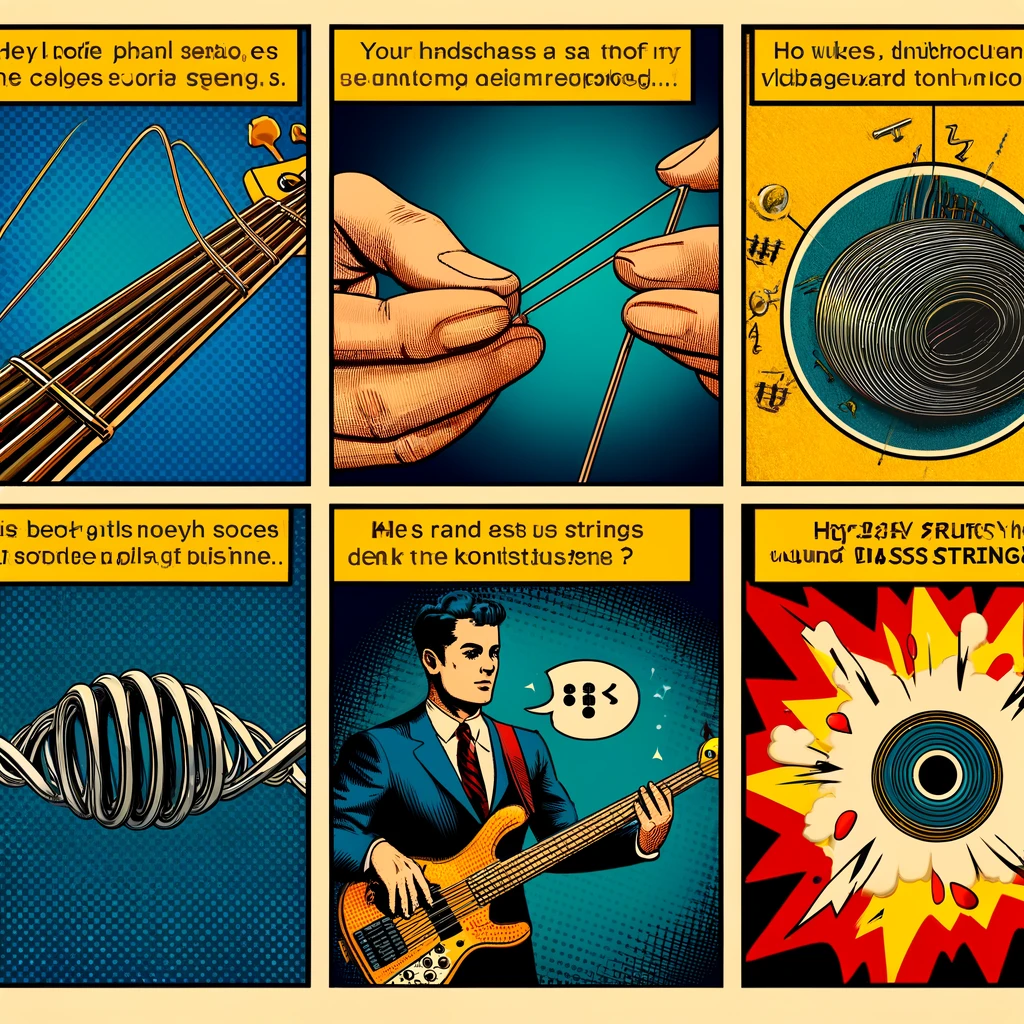Why do they make the bass strings wound
Increased mass.
Bass strings are wound to make them heavier but still remain elastic. Plain metal (or nylon, or gut) strings don’t sound good in the bass.
There are three things that change the pitch of the string. The string thickness, the length, and the tightness. When you tune your guitar, the only thing you are changing is how tight the string is pulled. When you set your intonation, you are changing the length (slightly). The thickness of the string is static and cannot be changed, unless you buy different gauge strings.
Given that, bass strings must be a lower frequency. So they must either be very long, or very thick. Since we can’t have 6 foot long bass strings, we have to make them thicker. But if you make a string too thick, you’ll end up with a solid metal rod that won’t vibrate much. So to compensate, they take a thin string and wind copper or nickel around it to make it thicker. That technique allows a string to remain flexible and vibrate.
Try taking your high E string and tuning it to the low E frequency on your tuner. You’ll begin to see why it must be thicker.
https://rumble.com/search/all?q=bass%20guitar%20strings
Bass strings are often wound with metal wire for several reasons, primarily related to achieving the desired pitch, tone, and playability of the instrument:
1. Thickness and Tension: Bass strings need to be thick and have high tension to produce the low frequencies characteristic of bass instruments. Using a solid metal core without winding would require an excessively thick and heavy string, making it impractical to play and causing excessive strain on the instrument’s neck and bridge. Winding the string with thinner metal wire allows for greater flexibility and playability while maintaining the necessary thickness and tension.
2. Mass and Inertia: The winding on bass strings increases their mass and inertia, which affects their vibration properties. This helps produce a richer, fuller tone with more sustain and resonance compared to unwound strings. The added mass also allows for better projection and volume, especially in the lower registers of the instrument.
3. Durability and Longevity: Bass strings are subjected to significant tension and stress during playing, particularly in styles that involve heavy plucking or slapping. Winding the strings with metal wire provides added strength, durability, and resistance to wear and corrosion, prolonging their lifespan and maintaining their tonal qualities over time.
4. Tonal Characteristics: The choice of winding material and construction method can significantly impact the tone and timbre of bass strings. Different metals, winding techniques, and core materials (e.g., steel, nickel, bronze) produce distinct tonal characteristics, allowing musicians to customize their sound to suit their preferences and playing style. For example, stainless steel windings tend to produce brighter, more articulate tones, while nickel windings offer warmer, mellower tones.
Overall, winding bass strings with metal wire is essential for achieving the desired balance of thickness, tension, durability, and tone, allowing bass players to produce the deep, resonant sound characteristic of their instrument while maintaining playability and longevity.
